Related Projects
Related Publications
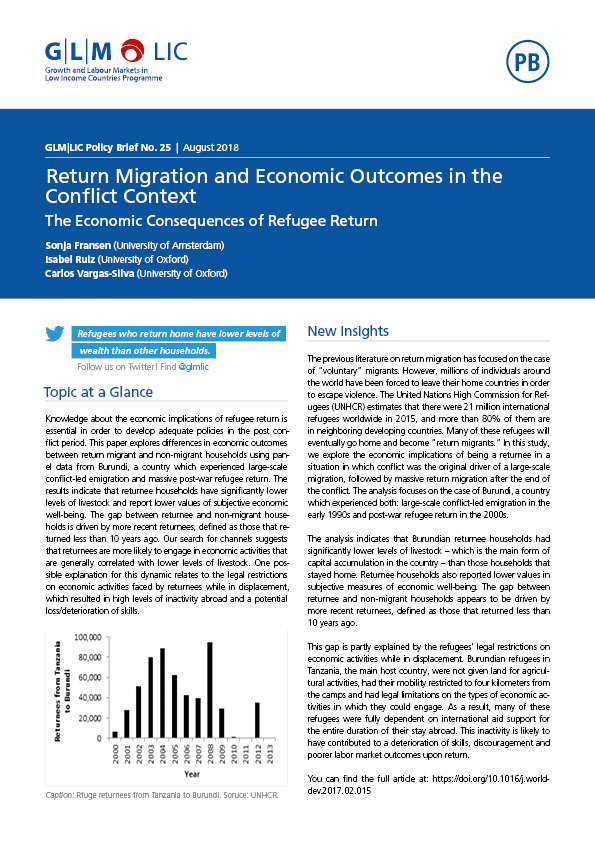
GLM|LIC Policy Brief No. 25
Return Migration and Economic Outcomes in the Conflict Context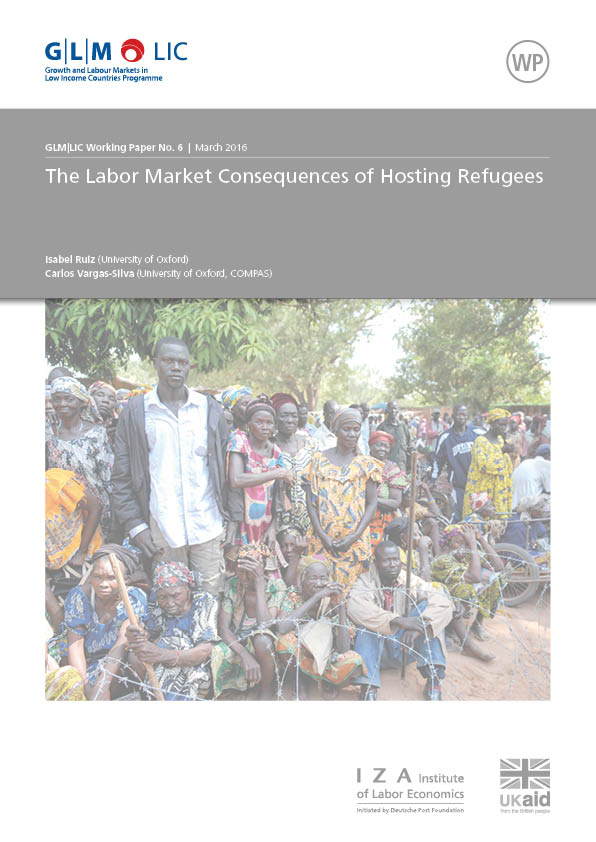
GLM|LIC Working Paper No. 6
The Labour Market Consequences of Hosting Refugees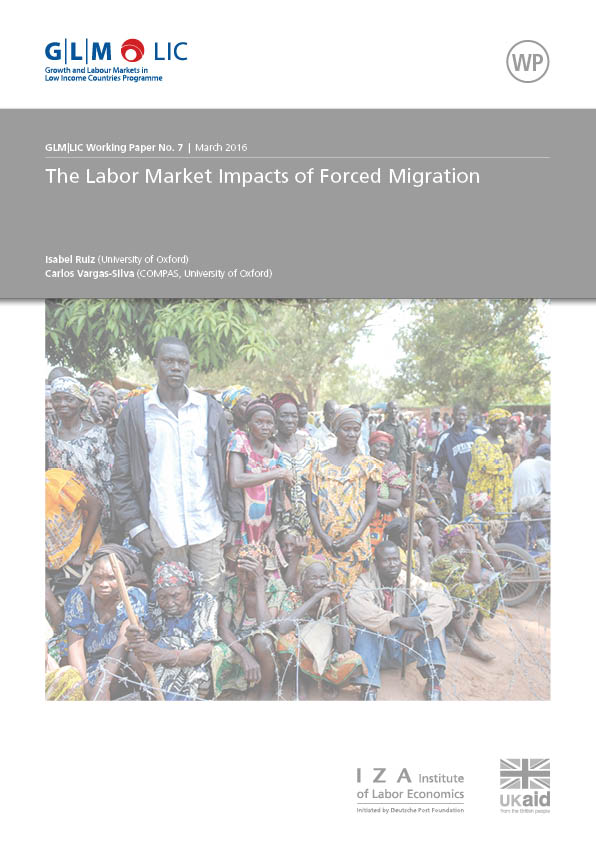
GLM|LIC Working Paper No. 7
The Labour Market Impacts of Forced Migration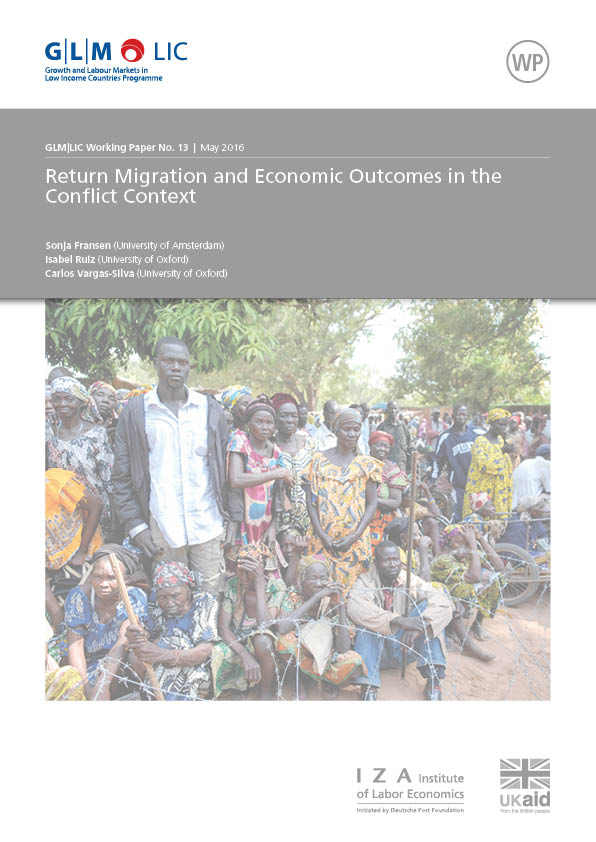
GLM|LIC Working Paper No. 13
Return Migration and Economic Outcomes in the Conflict Context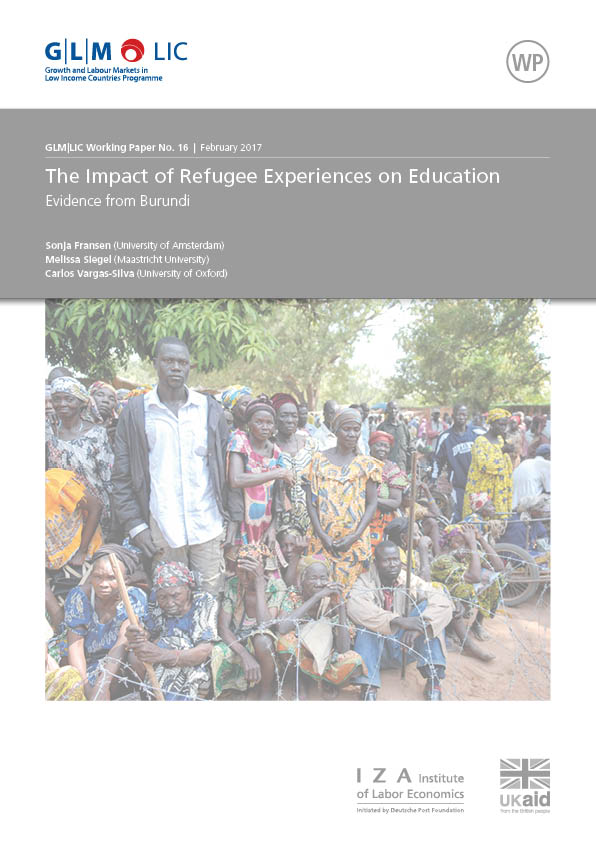
GLM|LIC Working Paper No. 16
The Impact of Refugee Experiences on Education
Published Articles
-
Journal of Economic Geography 2021, Volume 21, Issue 2, 169–194
The impacts of refugee repatriation on receiving communities -
IZA Journal of Development and Migration, 8(1), 6
The Impact of Refugee Experiences on Education -
World Development, 95, 196-210
Return Migration and Economic Outcomes in the Conflict Context -
The American Economic Review, 105(5), 581-586
The Labor Market Impacts of Forced Migration -
Journal of Economic Geography, 16(3), 667-694
The Labour Market Consequences of Hosting Refugees
